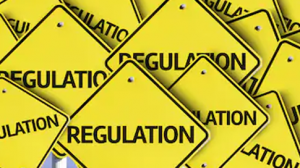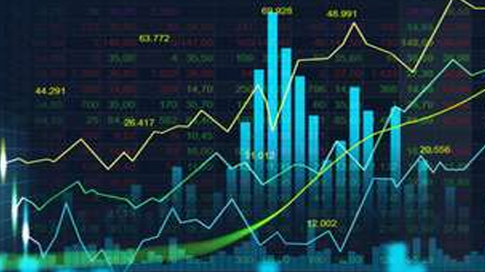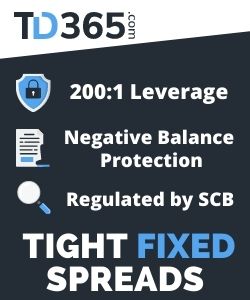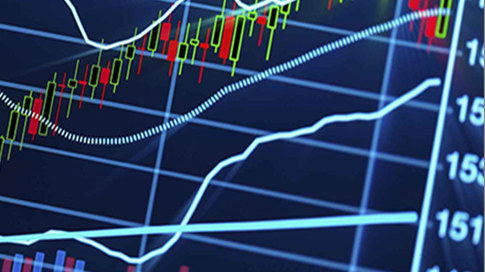
CFD Stock Brokers
August 16, 2017Pepperstone Review
August 17, 2017Compare Leading Forex Brokers in 2023
To the uninitiated, forex trading can be a pretty intimidating environment. But with the right education, knowledge and development of skills, it is an environment that can be navigated successfully.
But which forex brokers should you trade with? And what should you consider when looking for a forex broker?
Well, always trade with a regulated forex broker that offers upfront and transparent trading costs. Then consider the trading platform that they offer; is it straightforward and easy-to-use? Which financial instruments do they offer on their platform? If you’re looking for an FX broker specialist, then review which currency pairs that they offer – does it include minor and exotic pairs too?
- Forex trading, refers to the buying and selling of currencies to potentially make a profit on the value of one currency compared to that of another.
- When trading FX, you are speculating that one currency will improve against the other. If you are correct then you should make a profit on that trade – and that’s the entire point of trading forex – to make a profit!
- In terms of trading volume, the FX market is the largest financial market in the world. An estimated USD $5-6 trillion in FX is traded every day. Large global banks are the largest participants however, these days, there are hundreds of thousands of individuals, businesses and investment funds trading FX.
Before you can trade forex, you will need to open an account with an FX broker. Once you have deposited money onto your account, you are ready to trade.
It is important to point out that trading FX with a CFD provider means you will be trading on margin. This means you only need to deposit a small amount of money in order to open significantly large positions. For example, if your broker offers 200:1 leverage, you could deposit $500 onto your account and be able to open a trade with a notional value of $100,000!
Remember, trading on margin increases your buying power – this can help magnify potential profits, but on the other side, leveraged FX trading can bankrupt you just as quickly.
FX traders have one main aim: profiting from the change in value of one currency against another currency. This is done by speculating on which way they think FX prices will move in the future. By way of example; if the Aussie dollar (AUD) is expected to improve in value against the US dollar (USD), then an FX trader would buy AUD and sell USD. If the AUD increases, the trader should make a profit.
While there are many benefits to FX trading it’s fair to say that it’s not for the faint-hearted and retail traders should understand the risks before going ahead and trading FX. Below are some of the benefits of trading FX that come to mind;
As stated above, FX trading is not for the faint-hearted – most people see the incredible profits that can be made quickly when trading FX, but the fact remains that 90% of people will lose money when trading forex. And in quite a few cases, people have been bankrupted so do not underestimate the dangers of trading leveraged products like FX.
 Leverage – the double-edged sword
Leverage – the double-edged sword
Trading FX is a leveraged product meaning you only need a small initial deposit (trading on margin) to gain access to significantly larger trades. This means your profits are magnified if you have speculated correctly but alternatively, if you’ve speculated wrong and your trade is going against you, your losses can become horrific very quickly.
 Markets are open 24/5
Markets are open 24/5
The FX markets get very little (or no) sleep. The result is that you will need to keep a close eye on your trades around the clock otherwise you run the risk of something going badly wrong during the night and waking up to a large debt.
 Volatility
Volatility
Volatility within the FX market can be ruthless and your account can be wiped out in seconds if the market goes against you. Be very careful trading around significant news announcements (non-farm payroll, interest rates etc.) as the price movements can be extraordinarily large.

There are a number of costs involved when trading FX. You must be fully aware of these before you start trading to avoid any unpleasant surprises. Some of the more common costs are outlined below;
Spread: this is the difference between the buy and sell price of a currency pair. For instance if you were going to trade on the AUD/USD currency pair, the price might be 0.76665 (sell price) – 0.76670 (buy price). The spread is the difference between 0.76665 – 0.76670 which is 0.00005. The spread is the cost of opening a trade and is a normal broker charge. The tighter the spread, the cheaper it is to open that trade.
Commission: most brokers, like TradeDirect365, will not charge you a commission on FX trades. Instead, the spread will be the only upfront cost involved to open the trade. Please ensure you find out if you’ll be charged commission on any FX trades as some brokers do not disclose this.
Overnight financing costs: If you open a trade and wish to hold that position open overnight, you will be charged a small fee. Like spread charges, overnight financing costs are fairly standard in FX trading. They are essentially an interest payment to cover the cost of the leverage that you are using to keep your trade open overnight.

There is no shortage of forex brokers to choose from. So we’d recommend conducting some research on a number of forex brokers to find one that suits your FX trading style. Some important considerations are outlined below;
Regulation

A reputable FX broker is one that holds a number of key licences – typically including an FCA or ASIC licence. DO NOT trade with an FX broker that isn’t appropriately regulated as your money might be at risk.
Trading FX with a fully regulated forex broker has many benefits. Most importantly, your broker will be required to work within a certain framework, ensuring they run a business in accordance with local law.
Spread and Commission costs
An FX broker makes its money through trading costs like spread charges and commissions. Please familarise yourself with the costs involved when using a particular broker. Some brokers will charge more than others and it’s your job to find a broker that charges you fairly. If your broker is too expensive you should shop around – there are plenty of low-cost options out there.
Remember that the greater (wider) the spread, the more you’re being charged to trade. Beware of brokers that offer “zero spreads” or “fx spreads from 0.2 pips“, as there is usually a catch involved. If it sounds too good to be true….
Also find out if your forex broker charges ‘variable‘ or ‘fixed‘ spreads. Variable spreads’ means a broker can widen spreads throughout the day depending on volatility. They may indeed promote “spreads from 0.2 pips” but that doesn’t mean you’ll actually get a spread of 0.2. In fact you’ll probably get charged a much wider spread so beware and do your research before opening an account.
Quality of Customer Support
The quality of customer support you receive is crucial, especially if you are new to FX trading. Also, FX is a 24/5 business so you’ll need your broker to have around-the-clock support. Customer support may not be an obvious consideration when researching different brokerages, but it should be. Expect (demand) top-quality, helpful, expert and friendly support otherwise look elsewhere.
Forex Trading Platform
An Australian forex broker’ trading platform is your gateway to the world’s currency markets. Therefore, you need to ensure the software (trading platform, App, charts etc.) are easy to use and to your liking.
We’d recommend testing out a few demo accounts to get a feel of what’s on offer. There is nothing worse than finding a great broker to trade with – tight spreads, low commissions, great customer support – and then discovering that their trading platform is hopeless and you will not be able to use.
Speed of Withdrawing funds
Another important consideration is to find out how good a broker’s funding/ withdrawal process is. Speed is crucial. How quickly will you funds hit your trading account after depositing? And how quickly will they hit your bank account balance when withdrawing funds?
Also consider what funding methods are available. Credit card, debit card, bank transfer, BPay, PayPal, POLi, Skrill, Neteller, China Union Pay. These are all options to fund these days but not all brokers offer these. Also find out if you’ll be charged a fee to deposit/ withdraw funds.
In short, yes you will.
Forex brokers provide customers with full access to currencies and other financial assets, like stocks and commodities. Without signing up to one of their FX trading platforms, you will not be able to trade forex.
Currency pairs can be split into three main groups:
Major Currency Pairs
- EUR/USD
- USD/JPY
- GBP/USD
- USD/CHF
- USD/CAD
- AUD/USD
- NZD/USD
Minor Currency Pairs
- EUR/GBP
- EUR/AUD
- AUD/NZD
- GBP/JPY
- CHF/JPY
- NZD/JPY
- GBP/CAD
Exotic Currency Pairs
- EUR/TRY
- USD/HKD
- JPY/NOK
- NZD/SGD
- GBP/ZAR
- AUD/MXN
Amongst all those currency pairs, the most commonly traded currencies are typically the US dollar, British pound, Euro, Japanese Yen, Swiss franc, and the Australian dollar.




